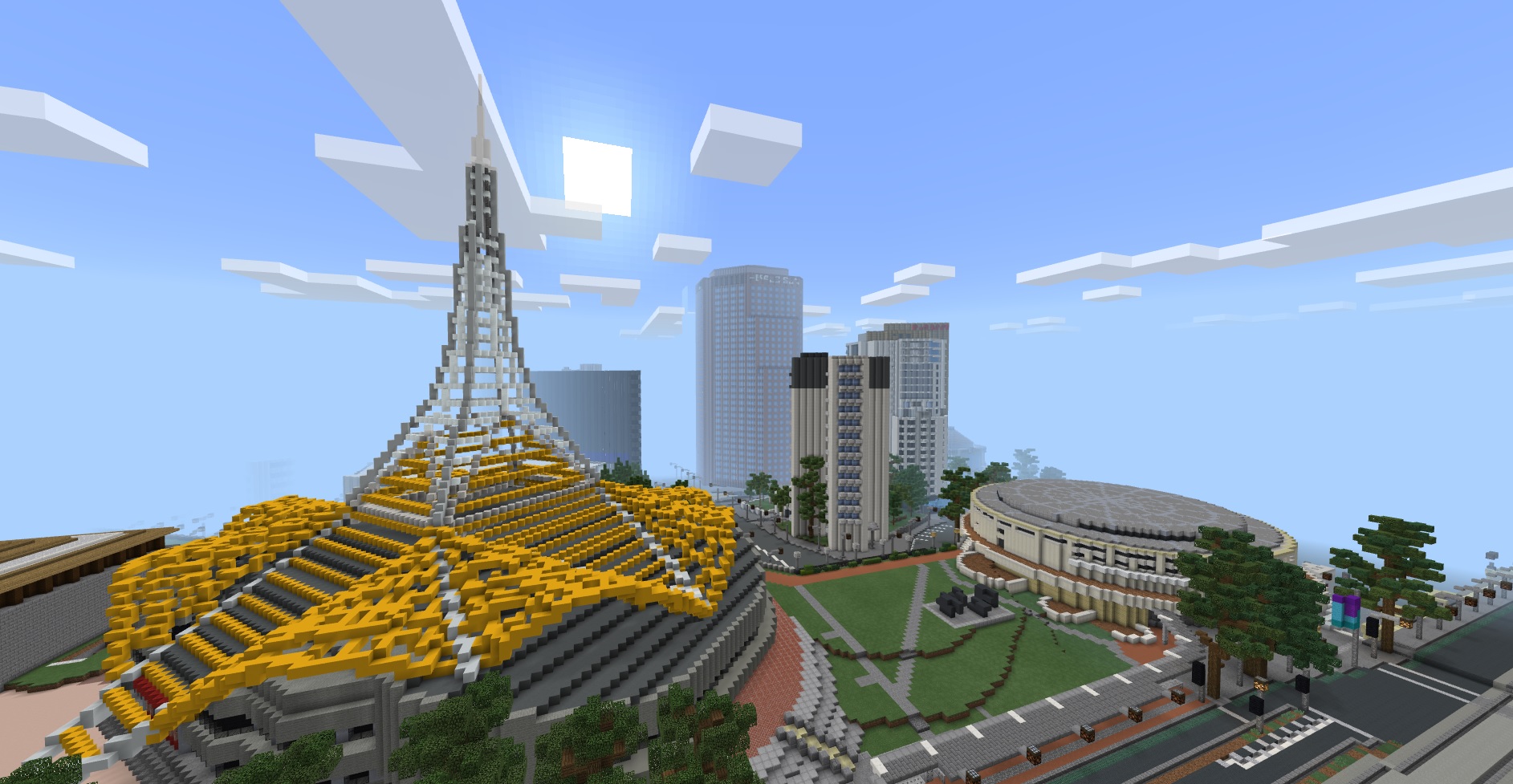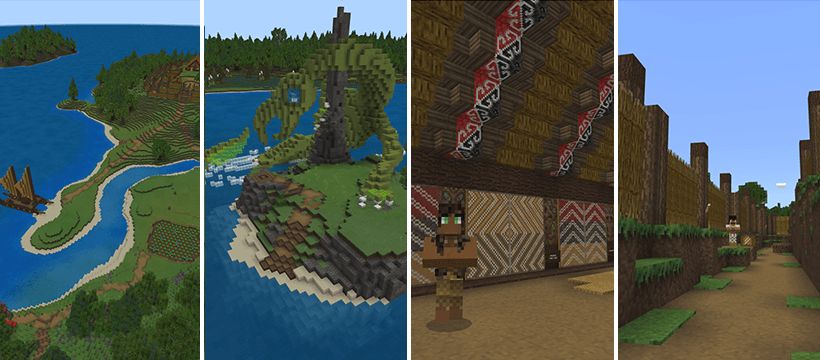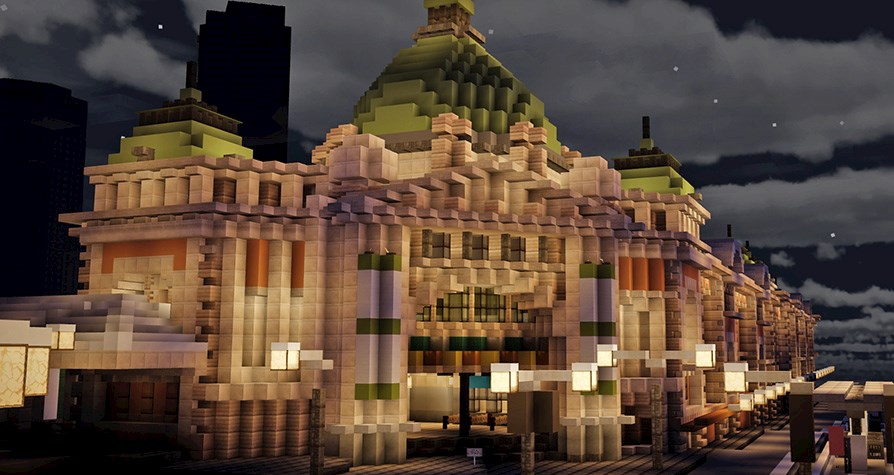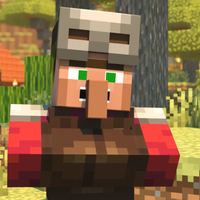How teachers are using Minecraft in the classroom
From a single living creature's cell to an entire city, Minecraft: Education Edition is giving students new spaces in which to learn.

"I probably shouldn't say this, but there are many times where colleagues and myself now refer to Minecraft in the classroom as a gateway drug to games and education," says Stephen Elford, a formerly maths and science teacher who found Minecraft so valuable as a teaching aid he co-wrote a book about it called Minecraft in the Classroom. As for why he found Minecraft particularly useful, he says it's "because it's so open and quite well-supported, and there's a really good community globally as educators who will give you a hand. It does open your eyes to the value of these kind of things in education and how you might do some things a bit differently."
If not a gateway drug, it was certainly a stepping-off point for Elford, who went from Minecraft to using other games in classes. "Did you play Plague Inc.?" he asks. "It's a game where you try to destroy the world as a disease. After I'd used Minecraft in my classroom for a while, I actually brought that into my [senior] biology class to discuss evolution."
Elford got into Minecraft as a player, and it took three years before he decided it really would be worth bringing to school with him. Initially he used MinecraftEDU, before it was bought by Microsoft and transformed into the official Education Edition, with a suite of enhancements specifically for teachers.
"Teachers have a little bit of software that they can use to oversee what's happening in worlds and things like that," he explains. "And there are items in blocks that support teachers in classrooms. There's the ability for students to actually take in-game camera shots and export them out to give to the teacher as evidence of learning, and there's ability to control where students can and can't build and where they can count go and things like that."
With these tools Elford brought Minecraft to his school in Australia, then worked with state government to get it into other classrooms. He's talked to other teachers across the world who've found ways to use it in every subject you can think of, where the focus it brings to even previously disengaged students has worked wonders.

Cross Pond Collaborations have created a virtual Verona for teaching Romeo & Juliet, which students can explore to write about what happens after the events of the play. Piki Studios in New Zealand are working on Mahimaina, "a world to teach native culture, Maori culture. It's immersive, it's cultural learning and it's in a relevant platform."
For biology students Elford made an animal cell students could walk inside, gathering information about organelles, and he also worked on Mini Melbourne, an environment where students could explore and even dig beneath the city of Melbourne, uncovering archaeological artifacts. Meanwhile, he says, "You've got teachers recreating ancient civilizations, reenacting ancient, historical, important events—I had a teacher get kids to curate a museum on ancient civilizations, so that they could compare and contrast the different cultural aspects of those civilizations."
The biggest gaming news, reviews and hardware deals
Keep up to date with the most important stories and the best deals, as picked by the PC Gamer team.
Students are building in Minecraft too. Though creative mode is more relevant for educational purposes, sometimes adventure mode has its uses as well. Elford had students form communities in-game, creating their own social rules and then self-policing, with impressive results. "They're in small groups, building collaborative clubhouses, all student-owned and directed and student-managed and behavior-managed and stuff like that. You had kids that put themselves in timeout because they did the wrong thing."

Minecraft potions: Recipes and brewing guide
Minecraft enchantments: Magical reference list
Minecraft villagers: All the jobs and trades
Minecraft realms: How to start your own server
This was for a Real World Maths class with Year 10 students (around age 15) in which performance in class was rewarded with extras in the game. One of the students in that class, Elford says, "hadn't done a great deal of work across his schooling career, let alone any homework." But when it meant earning something for his Minecraft company, that changed. "He wrote me a letter on the back of his homework sheet one week, said, 'Elfie, I hate you. Nah, just kidding. I did homework and I don't understand why and I don't understand what you've made me do and why you've made me do it.' Because he chose to do it. He'd never chosen to do the homework before."
As for why Minecraft has such a strong effect on students, Elford goes back to the reasons it has a strong effect on players regardless of where they encounter it. "From my gamer hat, I come at this and I go well, why did Minecraft keep me coming back to it for so long? And I think it's the same thing. It's that it's open. There's no direct narrative. It's like a paper and pen, you can do almost anything with it. It's limited by the imagination that you or, in a classroom, your students can put to it."
While he certainly sees educational value in the other games Minecraft has acted as a gateway to, he's found that sandbox experiences like it are particularly useful in teaching. "Don't get me wrong," he says, "I've just started playing Metro Exodus and it's an amazing, cinematic, virtual world experience, but it's on rails. I can go over here and do what I want over here, but I've got to follow the storyline. I think that's one of the things that Minecraft, particularly in a classroom, has value as. Because it doesn't have that storyline, the teacher can set the storyline."

Jody's first computer was a Commodore 64, so he remembers having to use a code wheel to play Pool of Radiance. A former music journalist who interviewed everyone from Giorgio Moroder to Trent Reznor, Jody also co-hosted Australia's first radio show about videogames, Zed Games. He's written for Rock Paper Shotgun, The Big Issue, GamesRadar, Zam, Glixel, Five Out of Ten Magazine, and Playboy.com, whose cheques with the bunny logo made for fun conversations at the bank. Jody's first article for PC Gamer was about the audio of Alien Isolation, published in 2015, and since then he's written about why Silent Hill belongs on PC, why Recettear: An Item Shop's Tale is the best fantasy shopkeeper tycoon game, and how weird Lost Ark can get. Jody edited PC Gamer Indie from 2017 to 2018, and he eventually lived up to his promise to play every Warhammer videogame.


